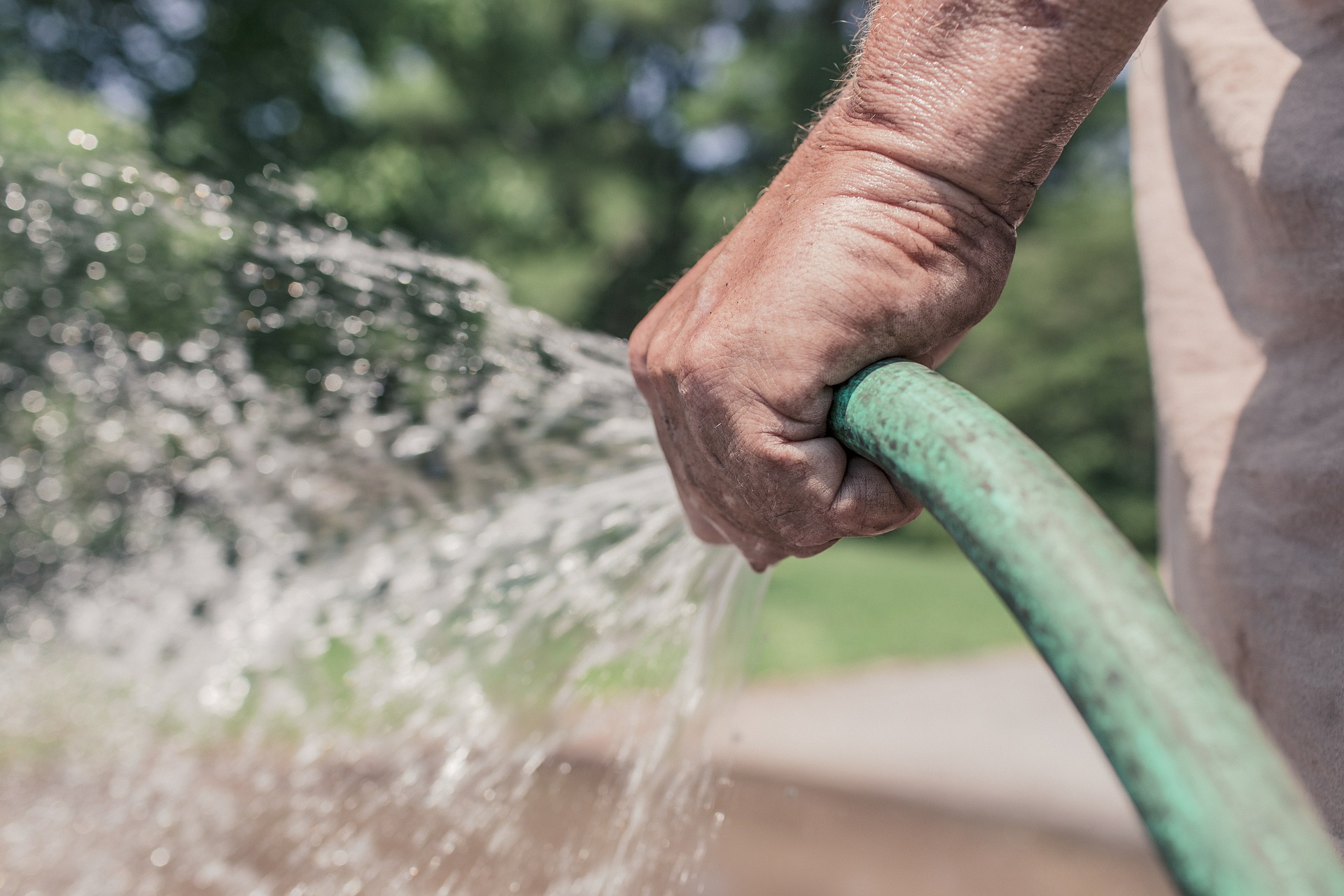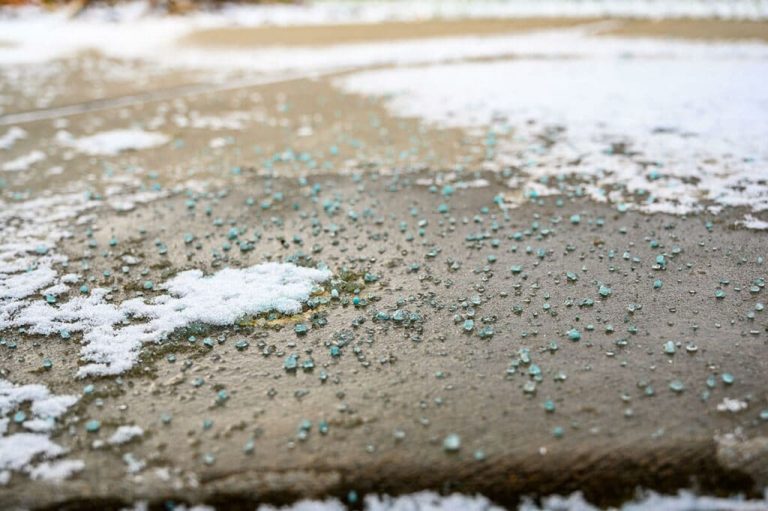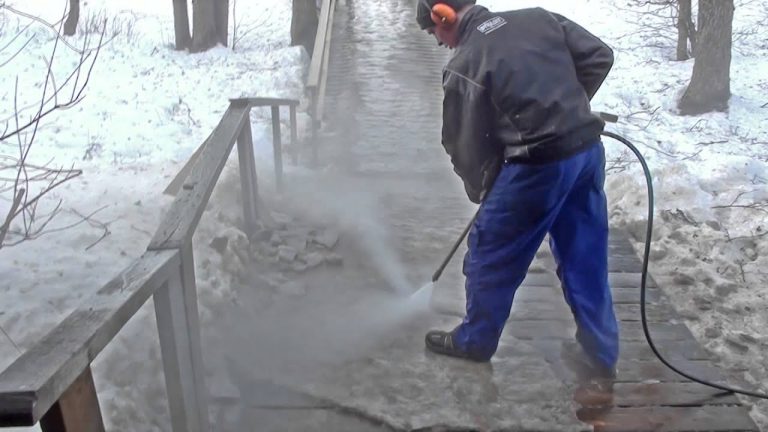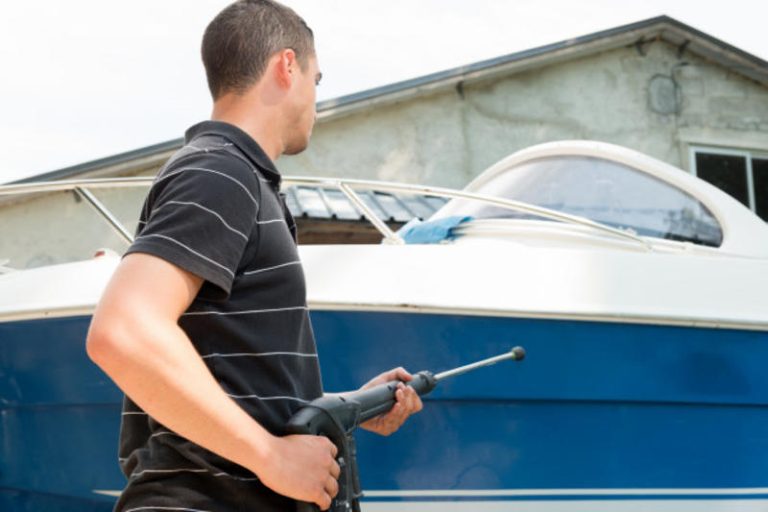
Ever looked at your grimy driveway, patio, or siding and wondered, “Can I just blast this clean with my garden hose and a nozzle?” 🤔 You wouldn’t be alone! Many homeowners ask whether a pressure washer is really necessary—or if a high-powered hose nozzle will do the trick.
While both tools shoot water to clean surfaces, there are major differences in power, purpose, and performance. Let’s break it down so you know exactly when each one is the right tool for the job. 💦🔍
💧 Water Pressure: The Big Divide
The biggest difference between pressure washers and garden hose nozzles is… well, pressure.
🚿 Garden Hose with Nozzle:
- PSI (Pounds per Square Inch): Typically 40–80 PSI
- Delivers more water volume than pressure
- Good for rinsing off light dirt or watering plants
💥 Pressure Washer:
- PSI: Ranges from 1,300 PSI (electric models) to 3,000+ PSI (gas models)
- Designed to break apart stuck-on grime, grease, mold, and mildew
- Can cut through tough buildup and reach deep into porous surfaces
Translation? A nozzle might clean your car, but it won’t do much against algae on your brick wall or oil stains in your driveway. 🧱💢
🔧 Tools and Functionality
Let’s look at what you’re actually using in each case:
✅ Garden Hose + Nozzle
- Simple setup: hose + twist nozzle or trigger sprayer
- Usually has spray options like mist, jet, shower, or cone
- No power source needed (just water pressure from the spigot)
- Lightweight and low-maintenance
✅ Pressure Washer
- Has a motor (electric or gas) and water pump
- Comes with various nozzles: 0°, 15°, 25°, 40°, soap, etc.
- May include detergent tanks or foaming attachments
- Requires fuel (gas models) or electricity (cord or battery)
You can think of a pressure washer as the power tool version of your garden hose. More parts, more settings, more power. 💪🔌
Browse Amazon Here For Top Rated Power Washers And Accessories
⚙️ Cleaning Power: Which One Wins?
It depends on the job. Here’s a quick matchup:
| Task | Garden Hose Nozzle | Pressure Washer |
|---|---|---|
| Washing a car 🚗 | ✅ Good | ✅ Better with foam cannon |
| Cleaning patio furniture 🪑 | ✅ Good | ✅ Good |
| Removing algae/mold from siding 🏠 | ❌ Not effective | ✅ Excellent |
| Stripping paint 🎨 | ❌ No way | ✅ With high PSI |
| Cleaning driveway stains 🧱 | ❌ Weak | ✅ Strong |
| Rinsing tools or light dirt 🔧 | ✅ Perfect | ❌ Overkill |
If your mess is light and superficial, a hose will usually get the job done. But for serious cleaning power, nothing beats a pressure washer.
🌱 Environmental Considerations
Water usage matters too—especially during droughts or when you’re trying to be eco-conscious. ♻️
🚿 Garden Hose:
- Can use 6–10 gallons per minute (GPM)
- Lower pressure means more water to achieve the same results
- Less efficient for deep cleaning
💥 Pressure Washer:
- Uses 1.2–2.5 GPM, but at much higher pressure
- Covers more surface area faster
- May require detergents (look for biodegradable ones!)
Surprisingly, pressure washers often use less water overall for tough jobs because they clean faster and more efficiently. 💧⚡
⚠️ Safety & Risk of Damage
Let’s be real—pressure washers can be powerful enough to hurt or cause property damage if misused. 😬
- 🧼 Garden hose nozzles are safe for almost any surface
- 💥 Pressure washers can strip paint, damage wood, or even cause injury
- Always use the right spray tip and keep a safe distance
If you’re cleaning a delicate surface (like windows, screens, or flower beds), stick to the garden hose. For concrete, bricks, and siding? The pressure washer wins—but treat it with respect. 🛑🧠
🧽 Detergent Use
Most garden hose nozzles don’t have a way to apply soap under pressure.
- With pressure washers, you can use specialized detergents for:
- Mold and mildew
- Oil and grease
- Vehicle foam washes
- Rust removers
Soap can dramatically improve results on stubborn grime, which gives pressure washers another edge. 🧴🧼
✅ Final Verdict: Which Should You Use?
It’s not a matter of which is better—it’s about choosing the right tool for the job.
Use a garden hose + nozzle if:
- You’re doing light maintenance or rinsing
- You want a low-hassle option
- You’re dealing with delicate surfaces
Use a pressure washer if:
- You need deep cleaning power
- You’re handling years of buildup
- You’re cleaning large or porous surfaces
Having both in your cleaning arsenal means you’ll always be prepared—whether you’re rinsing your garden tools or reviving a neglected driveway. 🌿🧼🏆
Browse Amazon Here For Top Rated Power Washers And Accessories






